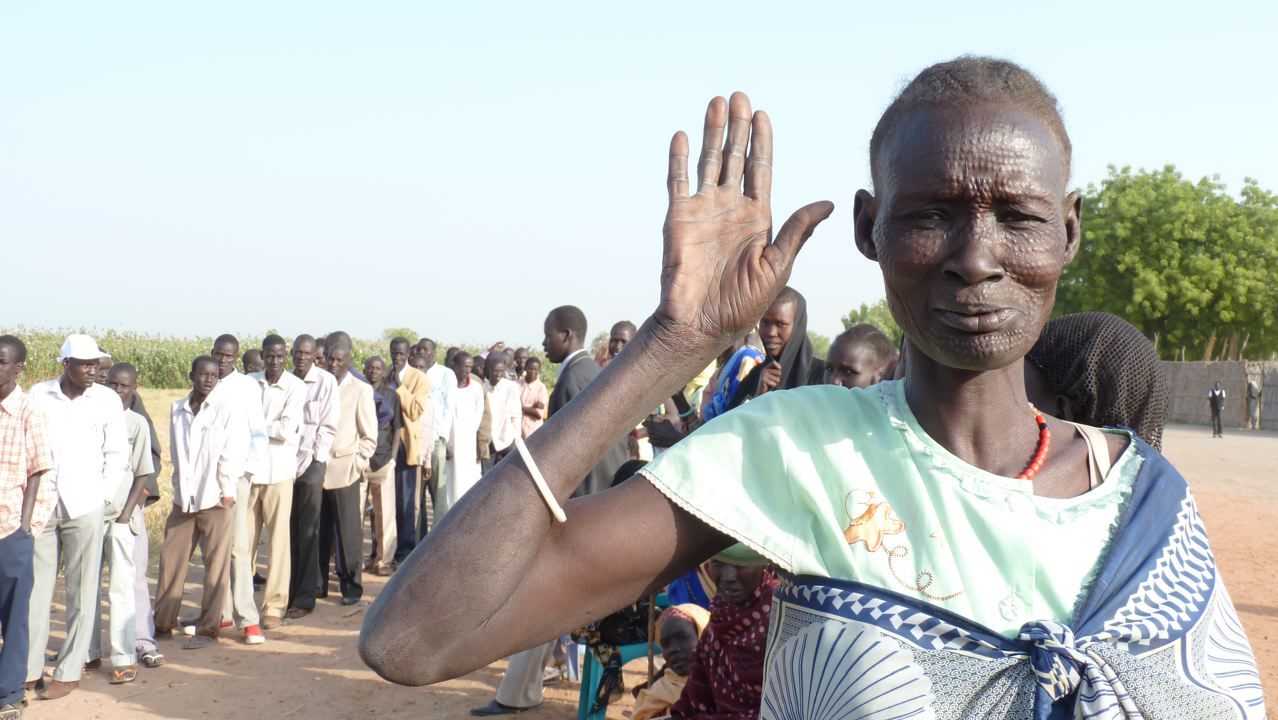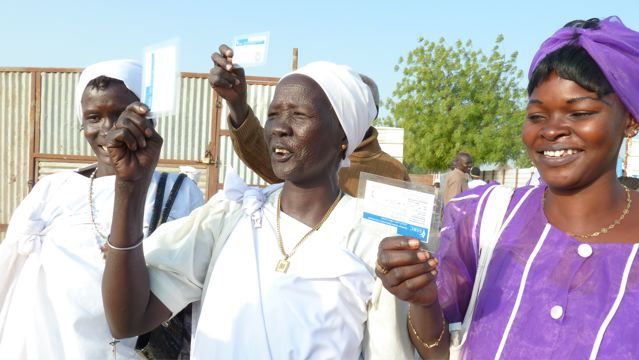Jan. 9, 2011 was such a day.
Father Samuel Akoch, pastor at Saint Martin de Porres Catholic Church didn't seem concerned by the many unoccupied chairs in front of him. Soon he and the faithful who did show up would join the absentees behind the church compound at the polling center.
"I know each of you came here to pray," he added, speaking the regional Nuer language of this dusty regional capital. "But I know that each one of us is carrying our voting cards in our pocket."
The plebiscite in the southern half of Africa's largest country (by land mass) is the culmination of an internationally brokered Comprehensive Peace Agreement signed in 2005 that ended the civil war that had raged on with only brief interruption since independence from Britain in 1956. For the predominantly black African south, it was a war against oppression and slavery at the hands of the Arabic-speaking north.
"For years they have taken our resources and treated us like slaves," said Peter Pal, a 20-something voter, as he waited in line.
Crude oil, discovered in the mid-'80s, brought vast wealth to Sudan -- and a new dimension to the conflict. Eighty percent of the oil fields are in southern Sudan, but many of the benefits flowed north. Throughout the voter lines and the unsheltered camps across the region, where an estimated 1.5 million southern Sudanese migrants have returned from the north, people expressed confidence that the government of an independent southern Sudan would deliver them from the struggle.
John Geng, on a break from his work at an oil rig just outside Bentiu, recited a long list of basic amenities that this battered region lacks almost entirely.
"We will have many changes, we will have our own president, and there will be jobs in the south, development, schools and hospitals."
Managing such expectations will be just one of the massive challenges that will face the Government of South Sudan, formed out of a rebel movement, which has governed autonomously since the CPA was signed. For one, a crucial oil revenue-sharing agreement, called for under the treaty, has languished. And the new nation will begin life as one of the poorest on earth. Its 11 million inhabitants (the best-available population estimate) have known little but war and displacement. Often the fighting has been the result of age-old rivalries among southern tribes. The peace this region has enjoyed since 2005 is at best precarious, punctuated by frequent spasms of scattered violence.
All of those worries were pushed aside at Sunday Mass at St. Martin de Porres.
As the service concluded, congregants burst into cheers, holding aloft their laminated voter registration cards or just an open palm, the campaign symbol for their independence. Father Samuel led the march next door to the polling center, and assumed his position at the end of a line already several hundred deep. It would be several hours before they would finally get to cast their thumbprints in one of two circles presented on their ballots: "Separation," symbolized by an open palm or "Unity" whose icon was a clasped handshake.
Polls will remain open for seven days, even though the outcome is a foregone conclusion. And even though there was clearly no need to rush to be counted, everyone wanted to be present and together on this historic day, said Reverend Akoch.
"This is the birth of a new nation."
Fred de Sam Lazaro's report is a partnership with the Pulitzer Center on Crisis Reporting and the Under-Told Stories Project at Saint Mary's University Under-Told Stories Project in Minnesota.



